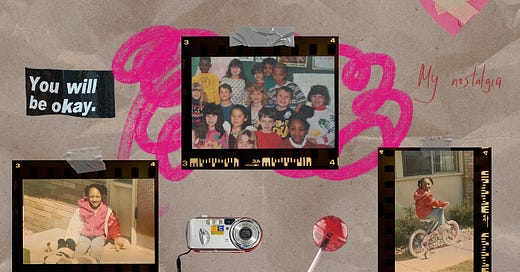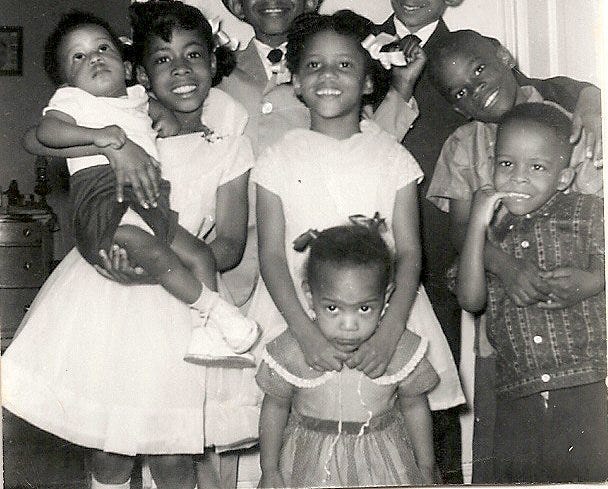Hi family,
Thank you, as always, for supporting my work. Over the past three months, I’ve consistently gotten 1,000+ views on each newsletter. This is HUGE (and also a teeny bit terrifying). Seeing your comments and restacked notes has encouraged me to be more consistent with this newsletter. I appreciate each and every one of you for taking time out of your day to read my words— especially on Substack, where there is an abundance of talented writers.
If you’re unfamiliar with my work, hi, hello! My name is LaChelle Chrysanne (pronounced luh-shell kris-ann), and I’m a writer and filmmaker. I use Substack as a space to share personal narratives, cultural critiques and curate music, film, books, and TV shows. Please consider subscribing.
If you are a patron of the arts or are particularly moved by something I’ve written, consider upgrading to a paid subscription. If you have commitment issues, you can buy me a taco.
I am also offering a Mother’s Day special that gives you 20% off your paid subscription for 1 year. All proceeds for this newsletter will go towards financing my next short film.
Thank you again for being here!
🖤🫶🏾
-L
My mother was the fifth child in a family of seven children. Stretched thin by the demands of caring for a large family on working-class wages, my grandparents could not always give their children the care they needed and deeply craved. Keeping up appearances was also a luxury that they could not afford. If you know anything about growing up in large, low-income families, you know that the younger children usually get hand-me-downs from their older siblings instead of new clothes. Uncombed hair, shirts with safety pins in place of buttons, and holes in the soles of shoes were the norm during rough periods for my grandparents. My grandmother, specifically, battled demons that made her unattentive to her children at times. All of this influenced a core part of my mother’s parenting style: ensuring I was well-groomed and could enjoy the things she did not have as a child.
My upbringing was a stark contrast to my mother's. My parents were unmarried and never lived together. I was the youngest child with a half-sister who was 11 years older than me. Having fewer children afforded my mom the means to care for me in ways her parents could not, though doing it alone presented its fair share of challenges. I always had nice clothes; it was a rare occasion when my hair wasn't perfectly pressed, twisted, braided, or coiffed. I had more toys than my mother, who grew up playing with mud pies, could've ever dreamed of having as a child. I was never hungry, unhoused, or abused. I know my mother did her damndest to ensure I never went without. Whether she was taking me somewhere that may not have been appropriate for children because she refused to leave her child with anyone or buying nice clothes for me at a discounted rate from boosters, she always did what she had to do. Still, demons are rarely slayed after one generation, and my mother, like her mother, had hers.
My mother and I's relationship has ebbed and flowed for most of my life. There are moments where I really like her, adore her even, and moments where I can't stand her. There have been times when I'm so hurt by something she has said or done that I go into freeze mode and seize communicating, which, in turn, hurts her. I can recognize that she met as many of my needs as she could, but as a single parent, not just struggling to raise me but with her mental health and unhealed traumas, there were always things that fell through the cracks. Throughout the years, I've had to learn how to have compassion for the parts of my mother that have caused me hurt. One exercise that helps me build this compassion is examining the narratives I've carried about my childhood and how it has shaped me. Looking through old photographs paints a picture that challenges my trauma and conditioning.
There are two contrasting photos that I've been reflecting on that tell a story about how I was cared for as a child.





